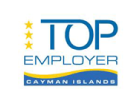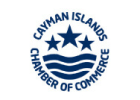Got questions? We've got answers.
Frequently Asked Questions
Are there jurisdiction-related restrictions on my ability to practice as an offshore lawyer?
Cayman Islands & Bermuda
To practice law in the Cayman Islands and Bermuda, you must be admitted and have practised in a commonwealth jurisdiction for the requisite number of years mentioned above. The majority of the expat lawyers in the Cayman Islands and Bermuda come from the UK, Canada, Australia, New Zealand and South Africa.
BVI
To practice in the BVI, you must be admitted as a solicitor or barrister in England & Wales, so the vast majority of expat lawyers in BVI tend to come directly from the UK or other offshore jurisdictions.
Channel Islands
You are permitted to practice as a lawyer in the Channel Islands so long as you have commonwealth experience. However, those with long term plans to live in the Channel Islands may also wish to gain admittance to the local bar. To become ‘Jersey qualified,’ you must have practised law on the island for two years and then sit a set of six exams. To become ‘Guernsey qualified’, you must have practised law on the island for three years and then sit a series of exams.
How much experience (PQE) do I need for offshore legal jobs?
Cayman Islands
You are legally required to have 3 years PQE to practice as a lawyer. Most of the major law firms will interview candidates at the 2.5PQE mark with a view to employing them shortly after their 3PQE anniversary.
BVI
No legal requirement regarding PQE, but most firms look for a minimum of 2 years of experience.
Bermuda
Again no legal requirement, but it is very rare for firms to hire expat lawyers with fewer than 5 years PQE.
Offshore firms in other jurisdictions such as the Channel Islands, Hong Kong, and Singapore will consider lawyers from NQ level upwards, as long as your training contract experience is relevant to the opportunity.
What types of legal jobs are available?
Learn MoreAs the fifth-largest financial center by transaction value, there is a consistent demand for lawyers and barristers with heavyweight international experience in Corporate, Finance, Funds, Commercial Litigation, Insolvency or Trust practice areas. There is also a smaller market for Property, Family, Employment, Criminal, In-House and General Practice lawyers.
How much can I expect to make salary-wise offshore?
Every firm has a different pay structure. Some pay a salary plus a bonus, some pay a salary plus commission, and some firms pay only a generous salary, preferring their Associates to enjoy a better work/life balance.
Traditionally, depending on the firm, your skillset and your PQE/PAE, you can expect to see salaries of between US$120,000 (tax-free or low tax) and US$220,000 with benefits on top. With generous commission schemes at the top firms, you can take your yearly earnings over US$500,000 with low or no income tax.
How soon will CML Recruitment's teams find me something?
It depends on your qualifications, experience, target role(s), and location(s). Assuming you meet the minimum professional standards for your discipline and have relevant experience transferrable to the offshore market, it can take anywhere from one week to three months or longer to obtain an offer. The more flexible you are concerning the role, salary expectations, and location, the more likely we will be to find you a good opportunity within a relatively short period.
How does the recruitment process work?
Once registered, your resume will be reviewed by a CML Recruitment Consultant. Our consultants are experienced, knowledgeable, and can generally assess the prospects for your employment in offshore services very quickly.
If the consultant believes that we can help you, they will call or email to schedule a telephone call and/or request some further information. This is an opportunity for us to get to know you and find out more about your requirements and expectations and address any concerns we may have about your expectations or circumstances.
Our consultant will be able to give you an accurate and frank estimate of your earning potential, a range of options, and an indication of the likely timeline based on our experience with similar candidates. Once we have a clear picture of your background and preferences, we can initiate an action plan to approach potential employers on your behalf. We will arrange interviews in liaison with our clients’ Human Resource departments.
I've heard the cost of living is astronomical. Is this true?
The cost of living is generally no higher than you would find in any big financial centre like London or New York. Rent is always the main large expense, but bear in mind that you may get a beachfront condo with a sea view and a swimming pool for the same price as the average one-bedroom apartment in London!
Most offshore centres also have low tax rates, so it is vital to compare net salaries rather than gross, which you may be tempted to do from force of habit. It is very important to research and prepare your own detailed budget, especially if you are relocating with a spouse or dependents.
To help you better understand the reality of life offshore, we have created Offshore Career & Cost of Living Guides for each of the main jurisdictions we recruit, check them out here:
How do the working hours at offshore firms compare with onshore firms?
Depending on the role and what’s expected/required of you, there won’t be a massive difference in onshore/offshore working hours. A typical work week will be around 8.30 am to around 6:00 pm.
The main difference you will see (and appreciate) between onshore/offshore working hours is the commute. If you’re currently in a bigger city, you might have some type of public transportation or crazy commute time to and from work, whereas offshore, you will most likely live between 10-15 minutes from the office and will often find yourself having time to go for a jog before heading in or grabbing sunset drinks after you’ve finished for the day.
New global agile work policies have some firms offering a few days a week optional work from home or flexible start/finish times. (please note that if you are new to a company, this option might not be eligible for you right away).
What are the immigration requirements for offshore legal jobs?
Cayman, BVI, and Bermuda require non-citizens to have work permits, which must be obtained by the employer based on a specific job. Regarding relocating with a partner or spouse, a legal spouse can be classified as a dependant on their partner’s work permit to reside on-island. They are also legally permitted to search for work as a ‘dependant’ on their spouse’s permit. Unmarried partners are not permitted to reside without having a job and permit of their own.
In the Channel Islands, work permits are not required for UK passport holders. Commonwealth citizens may be exempt if they qualify for a UK ancestry visa, and all other professionals will need to obtain a ‘Skilled Worker Visa’.
What kind of relocation benefits are generally available?
This varies from client to client. The minimum you can expect is your flight, two weeks car/scooter rental, and two weeks accommodation. This is usually enough time for you to make permanent arrangements for transport and accommodation. Our consultants are happy to help and advise you if required.
At the other end of the spectrum, some companies will offer flights for all your dependents as well as a relocation allowance, which may be on a cash or reimbursement basis. Moving allowances are often included; however, most rental accommodation is fully furnished and equipped. It is therefore inadvisable to bring anything that cannot easily be transported with you as luggage. There is no reason to bring vehicles, household appliances, or furniture. It is not necessary to use a relocation allowance just because you have it. Relocation packages are usually a matter of company policy and are rarely negotiable except for senior management roles.
I am a qualified professional and would like to relocate with my spouse/partner and/or children. Will this pose a problem?
Not necessarily, but your options may be somewhat restricted depending on your marital status, earning potential, target location, and spouse’s occupation. It is critical that you make our consultants fully aware of your circumstances from the outset to enable them to advise you appropriately on the potential implications for your cost of living and immigration requirements. If your spouse/partner plans to work, you should provide their resume to your consultant as early as possible in the process.
The bottom line is that a partner’s employment rarely causes an insurmountable problem for couples that are determined to relocate and who are willing to be patient, persistent, and flexible in their search.




